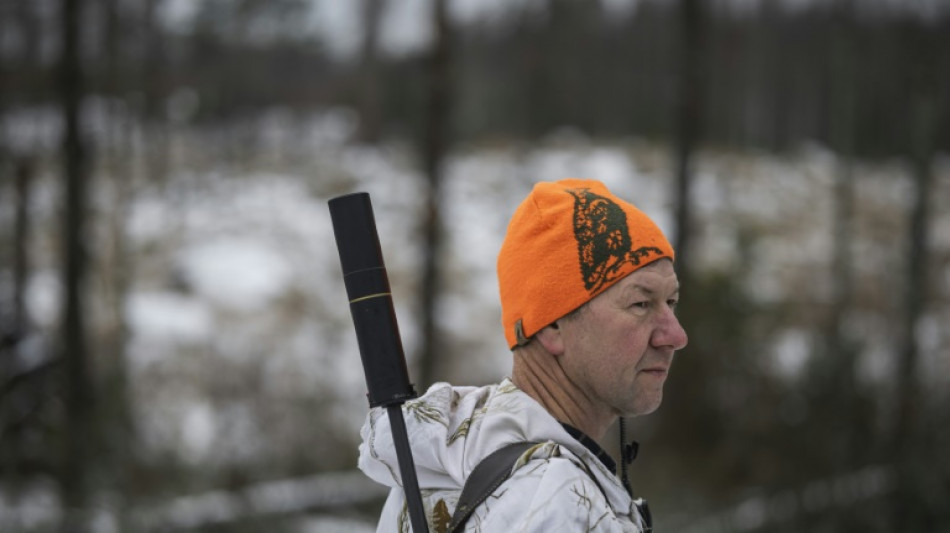
-
 What we know ahead of the conclave
What we know ahead of the conclave
-
Jannik Sinner launches foundation supporting children

-
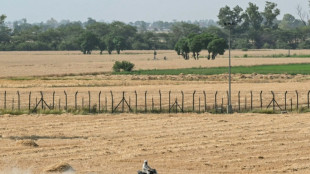 Villagers on India's border with Pakistan fear war
Villagers on India's border with Pakistan fear war
-
Putin announces surprise Ukraine truce for May 8-10

-
 Conclave to elect new pope starts May 7
Conclave to elect new pope starts May 7
-
Stock markets mostly rise amid trade talk hopes

-
 India says signs deal with France for 26 Rafale fighter jets
India says signs deal with France for 26 Rafale fighter jets
-
Trump's deep-sea mining order violates global norms: France

-
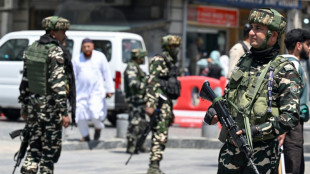 India Kashmir crackdown sparks anger as Pakistan tensions escalate
India Kashmir crackdown sparks anger as Pakistan tensions escalate
-
Russia says claims over annexed Ukraine regions key to peace

-
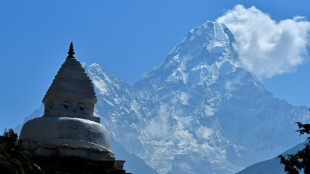 Austrian climber dies on Nepal mountain
Austrian climber dies on Nepal mountain
-
Fires rage 2 days after Iran port blast killed 46

-
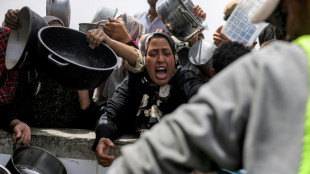 Palestinian official tells ICJ Israel using aid blockage as 'weapon of war'
Palestinian official tells ICJ Israel using aid blockage as 'weapon of war'
-
France arrests 25 in police raids after prison attacks
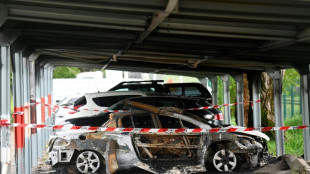
-
 Kim Kardashian's next star turn is in a Paris courtroom
Kim Kardashian's next star turn is in a Paris courtroom
-
Syria group says military chief arrested in UAE

-
 Anger in Indian Kashmir at demolitions and detentions
Anger in Indian Kashmir at demolitions and detentions
-
Italy bank merger wave heats up as Mediobanca eyes Banca Generali

-
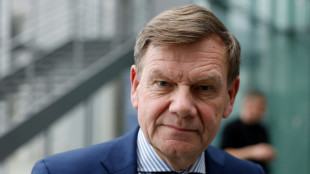 Putin critic Johann Wadephul, Germany's incoming foreign minister
Putin critic Johann Wadephul, Germany's incoming foreign minister
-
Cardinals expected to pick conclave date to elect new pope

-
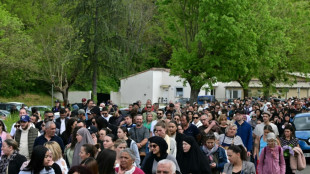 French mosque murder suspect arrested in Italy
French mosque murder suspect arrested in Italy
-
China says on 'right side of history' in trade standoff with US

-
 Stock markets mostly rise as investors eye trade talks
Stock markets mostly rise as investors eye trade talks
-
Fires rage 2 days after Iran port blast killed 40
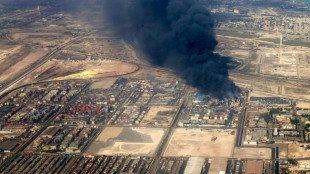
-
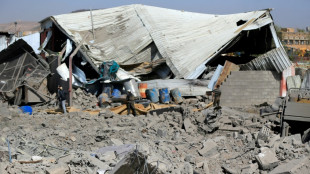 Yemen's Huthi rebel media says 68 killed in US strikes on migrant centre
Yemen's Huthi rebel media says 68 killed in US strikes on migrant centre
-
Man rescued from Mount Fuji twice in one week: reports

-
 Canada votes for new government to take on Trump
Canada votes for new government to take on Trump
-
Top UN court to open hearings on Israel's aid obligation to Palestinians
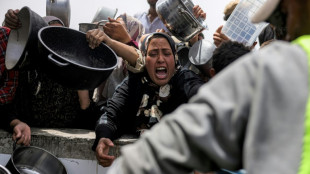
-
 Philippines denies 'irresponsible' Chinese report on disputed reef
Philippines denies 'irresponsible' Chinese report on disputed reef
-
T'Wolves win to push Lakers to brink, Celtics, Knicks and Pacers win

-
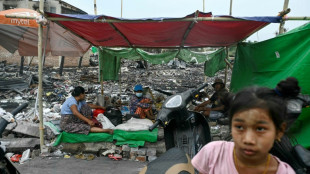 Myanmar marks month of misery since historic quake
Myanmar marks month of misery since historic quake
-
South Korea's SK Telecom begins SIM card replacement after data breach

-
 Women's flag football explodes in US as 2028 Olympics beckon
Women's flag football explodes in US as 2028 Olympics beckon
-
'Hunger breaks everything': desperate Gazans scramble for food
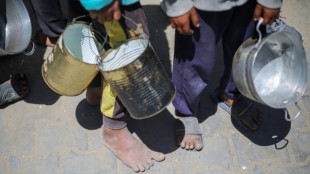
-
 Suspect charged with murder in Canada car attack that killed 11
Suspect charged with murder in Canada car attack that killed 11
-
Lost to history: Myanmar heritage falls victim to quake

-
 Romania far-right rides TikTok wave in election re-run
Romania far-right rides TikTok wave in election re-run
-
Trial begins in Paris over 2016 gunpoint robbery of Kim Kardashian

-
 Trump thinks Zelensky ready to give up Crimea to Russia
Trump thinks Zelensky ready to give up Crimea to Russia
-
North Korea confirms troop deployment to Russia's Kursk
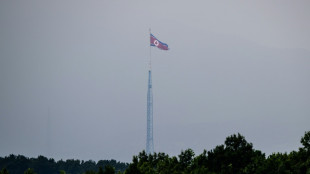
-
 Romania presidential election re-run under Trump shadow
Romania presidential election re-run under Trump shadow
-
Asian markets mixed as investors eye trade talks

-
 T'Wolves push Lakers to brink of elimination, Celtics and Knicks win
T'Wolves push Lakers to brink of elimination, Celtics and Knicks win
-
Suspect charged with murder in Canada car attack that left 11 dead

-
 Smart driving new front in China car wars despite fatal crash
Smart driving new front in China car wars despite fatal crash
-
Cardinals set to pick conclave date to elect new pope

-
 Miami's unbeaten MLS run ends after Dallas comeback
Miami's unbeaten MLS run ends after Dallas comeback
-
After 100 days in office, Trump voters still back US president

-
 US anti-disinformation guardrails fall in Trump's first 100 days
US anti-disinformation guardrails fall in Trump's first 100 days
-
Dick Barnett, two-time NBA champ with Knicks, dies at 88


Emotions run high in Sweden's biggest wolf hunt
Hunter Lars Bjork points to fresh tracks in the snow as he lumbers through a whited-out forest in central Sweden, where the biggest wolf hunt in modern times is drawing controversy.
"We have quite a lot of wolves here, we're actually sitting in a new wolf territory where we are now," Bjork, a predator expert at the Swedish Hunters' Association, tells AFP as he settles into a small hunting lodge a few kilometres (miles) outside the town of Vasteras.
Long known as a champion of environmental protection, Sweden has paradoxically had a centuries-long opposition to wolves, considered a plague in the 1800s with the state paying out bounties for kills as late as the mid-20th century.
Still seen as a threat by farmers, the state now sanctions a limited cull of the animals every year.
This year, Sweden's hunters are allowed to kill a record 75 wolves out of an estimated population of 460, according to the Swedish Environmental Protection Agency's latest inventory.
That is more than twice the number that hunters were allowed to kill last year, and the highest number since the culls began in 2010.
A total of 54 wolves had been killed as of Sunday.
Several local authorities have already called off the hunt in their regions, and the full quota isn't expected to be reached by the February 15 deadline.
Nonetheless, the wolf hunt remains a highly divisive issue, both inside and outside the Nordic nation.
- Rural problems -
After Sweden's wolves were hunted to the brink of extinction, the country declared them a protected species in the 1960s.
Wolves started reappearing in the late 1970s and 1980s, before populations started growing in the 1990s.
As their numbers surpassed 200, Sweden began allowing licensed hunts in 2010, issuing quotas for the number that can be killed during a set period.
"The purpose is simply to limit the problems they cause out in more rural areas," 59-year-old Bjork explains.
For farmers, wolves are a menace as they occasionally attack livestock, primarily sheep.
They also pose a threat to hunting dogs, used to track and drive wild game such as deer and elk.
Sweden also allows yearly hunts of brown bears, wolverines and lynx -- all considered endangered -- in order to limit damage to livestock and reindeer.
Reindeer are integral to the indigenous Sami people's way of life in the far north.
All hunts have detractors, but the wolf hunt has been particularly acrimonious since its inception.
Opponents of the hunt argue wolves are needed to protect biodiversity, playing an important role as predators.
"It is astonishing that Sweden keeps on making these decisions," says Marie Stegard Lind, vice president of Jaktkritikerna, a group working to limit hunting.
The hunts continue "in spite of the fact that the European Commission has been very clear about its opinion that these hunts are in fact illegal", she tells AFP at the group's office in Stockholm.
In 2015, the European Commission warned that Sweden's wolf hunt fell foul of the EU's Habitats Directive, noting that the wolf "population has not reached a level that guarantees the conservation of the species".
Other EU members with growing wolf populations have called on the Commission to update its Habitats Directive to better protect livestock farming.
- Question of numbers -
Kjell-Arne Ottosson, a Swedish member of parliament for the Christian Democrats and vice president of the environment and agriculture committee, tells AFP that Sweden needs to stand its ground against the EU.
"Wolves are a threat for those of us who live in rural areas. We have to manage that, we have to take this seriously," Ottoson says.
The only fatal wolf attack in modern times against a person in Sweden was in 2012, when a captive wolf attacked a keeper at the Kolmarden Wildlife Park.
But the issue often boils down to disputes over an acceptable size for the wolf population in terms of impact and risks, and ensuring there are enough wolves to limit inbreeding.
According to the Swedish Environmental Protection Agency, at least 300 are necessary to sustain a healthy population.
In a letter published by magazine Science in July 2022, a group of scientists argued the culls were a threat to a healthy Swedish wolf population.
They said the stocks that span Scandinavia and Finland should be kept above 500.
Conversely, Sweden's parliament in 2021 voted to cap the population at 270 wolves.
The Swedish Hunters' Association wants to go even further and lower the limit to 150 wolves, spread across the country.
Currently the animals are mostly found in the central and western parts of Sweden.
"The wolf has a place here, absolutely," hunter Bjork says.
"But not in the amounts we have today and not in the concentrations we have today."
T.Ward--AMWN